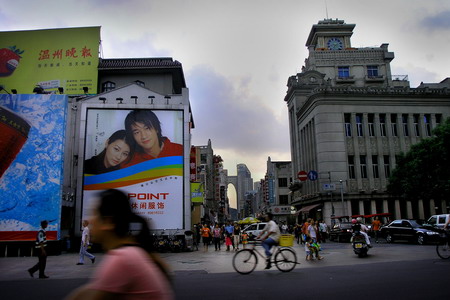-
News >Bizchina
Small businesses boost Wenzhou
2010-12-16 10:00
Coastal city aims to become major global shoe and clothing exporter
The city's export volume in the first 10 months of this year reached $11.7 billion, 32.4 percent more than the total volume in 2009. [Photo / Provided to China Daily]
WENZHOU, Zhejiang - Monday traffic in Wenzhou is the worst of the week. Numerous BMWs, Ferraris or Lamborghinis surround taxis amid the constant honking by irate drivers on their way to another jam-packed day. Mixed into the exhaust-filled air of the city, one can also detect the smell of business - big or small - that comes with major change.
This is Wenzhou, a coastal city in East China's Zhejiang province, where self-made millionaires abound and locals are known among their fellow countrymen for having the "business gene".
Wenzhou is a major source of "Made in China" goods such as shoes and clothes, with its success riding on the export-oriented economy.
While the city continues to churn out exports with double-digit growth, competition in the local economy is becoming much fiercer with fewer resources available.
Higher land prices and wages as well as a rising yuan mean small enterprises - mostly original equipment manufacturers (OEMs) for overseas companies - are making smaller profits.
"Wenzhou's economy largely relies on labor-intensive industries even today, but the current international trade situation has weakened such economic advantages," said Zhou Dewen, the head of the small- and medium-sized enterprises (SMEs) association in Wenzhou.
That is why many believe reforming the city's business structure is imperative. More than 1,000 enterprises moved their factories out of the city in 2008 alone, and about 25 percent of them moved entirely, figures from Wenzhou's Municipal Bureau of Statistics and the Shanghai Overseas Chinese News show. And the move is ongoing.During the global financial crisis, many SMEs stopped producing because of the sharp decrease in overseas orders. Up to 20 percent of these companies are reported to have closed down.
But Wenzhou's exports are getting back on track in the economic recovery. The city's export volume in the first 10 months of this year reached $11.7 billion, 32.4 percent more than the total volume in 2009. More than 50 percent of the products were shipped to the United States and European countries, making Western markets the biggest target of the city's international trade, according to the Wenzhou Foreign Trade and Economic Cooperation Bureau.
According to local media, European Union countries are still taking the lion's share of the city's products, but Wenzhou also exported more than $218 million worth of shoes to the United States, which replaced Russia as the second-largest overseas market last year.
Traditional exports such as clothes and shoes are still leading the local economy. The shoe sector contributed about $3.1 billion to the economy, $350 million more than last year. Exports of clothes hit $1.21 billion this year, up by 18.5 percent from 2009, the bureau reports.
"To maintain strong economic development, Wenzhou needs its own brands and to promote them to the world, rather than just being the OEM of the international market," said Pan Pinging, vice-director of the bureau.
To that effect, small clothing and shoe companies from Wenzhou have begun gathering as groups since 2009 to promote local brands to the domestic market first.
